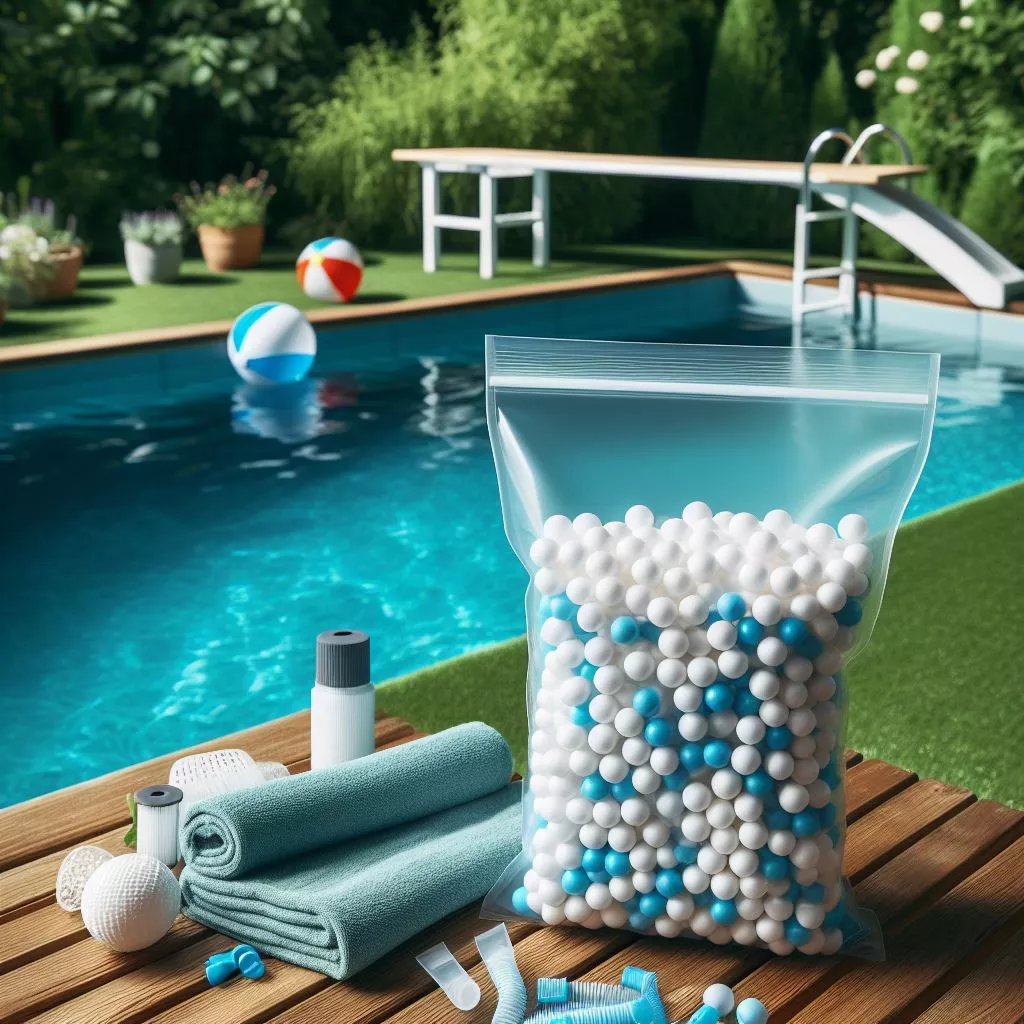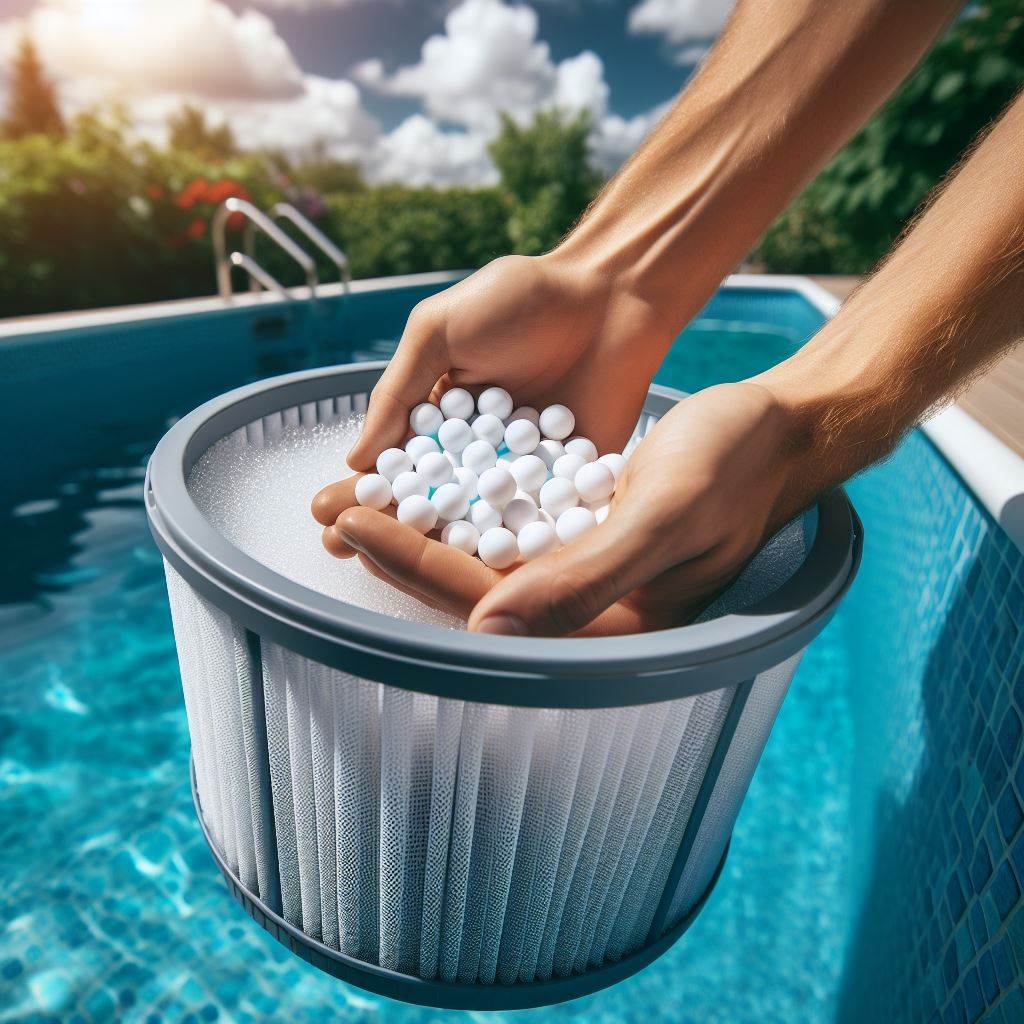Have you ever noticed that your pool water quality isn’t as good as expected, even with a high-efficiency filtration system? This is where balls for pool filter and balls for sand filter become especially important. But how can you make these pool filtration balls work at their best? This article will provide you with detailed methods and suggestions to help you easily manage your pool maintenance.
Understanding the Basics of Pool Filter Balls
To improve the effectiveness of pool filtration balls, it’s crucial to understand how they work. These filter balls are usually made from materials like polyethylene, which are lightweight and highly absorbent. Compared to traditional sand filters, filter balls can more effectively capture fine particles and impurities, keeping the water clean. Their high porosity allows them to hold more dirt and debris, and they are easy to clean and maintain.
Regular Cleaning and Maintenance is Key
To ensure balls for pool filter continue to work efficiently, regular cleaning and maintenance are essential. Here are some detailed suggestions:
Cleaning Frequency
Clean the filter balls every few weeks to effectively remove attached impurities and prevent clogging and performance degradation. The steps are as follows:
- Turn Off the Filtration System: Ensure the filtration system is completely turned off to prevent accidental startup.
- Remove the Filter Balls: Open the filter tank and carefully remove the filter balls.
- Clean the Filter Balls: Rinse the filter balls thoroughly with clean water. If there is a lot of dirt, you can use a mild detergent in warm water for a deep clean, then rinse with clean water.
- Reinstall the Filter Balls: Place the cleaned filter balls evenly back into the filter tank, ensuring an even distribution.
Maintenance Tips
While cleaning the filter balls, it’s also necessary to check other parts of the filtration system. Ensure the filter’s seals are not damaged, and all connecting parts are tightened securely. Additionally, regularly check the operation of the filter pump to ensure it is functioning properly.

Correct Installation and Use of Filter Balls
When installing and using balls for sand filter, attention to key details ensures all parts of the filtration system are correctly connected to avoid leaks or incomplete filtration. Here are some installation tips:
- Even Distribution: Ensure the filter balls are evenly distributed in the filter, avoiding too much concentration or sparsity to allow uniform water flow through the filter balls.
- Check Connections: After installation, check all connection points for tightness to prevent loosening and leaks due to water flow impact.
Maintaining Water Quality Balance
Water quality balance directly affects filtration effectiveness. The pool water’s pH, chlorine levels, and hardness need to be within appropriate ranges. If the water quality is unbalanced, it will not only affect the performance of pool filtration balls but could also deteriorate the water quality. Here are some specific suggestions:
pH Control
The pool water’s pH should be maintained between 7.2 and 7.8. pH levels that are too high or too low can affect filtration effectiveness and potentially damage the filter balls. Use pH test strips or electronic testers regularly, and adjust with pH regulators as needed.
Chlorine Levels
Maintaining appropriate chlorine levels effectively kills bacteria and algae in the water, keeping it clean. Typically, chlorine levels should be between 1 to 3 ppm (parts per million). Use chlorine testers regularly and add chlorine tablets or liquid chlorine as needed.
Hardness Management
Water hardness that’s too high or too low can affect filtration. Hard water may cause scaling on the filter balls’ surface, while soft water may cause corrosion to the filtration system. Use hardness testers to check the water’s hardness and adjust with hardness regulators as necessary.
Preventing Large Debris
Even though balls for pool filter can capture fine particles, large debris like leaves and insects need to be pre-treated. Here are some preventive measures:
- Use a Pool Net: Regularly use a pool net to remove large floating debris from the water’s surface, preventing them from entering the filtration system.
- Install a Debris Cover: Install a debris cover at the pool entrance to catch large debris and protect the filtration system.
Timely Replacement of Filter Balls
Even the best filter balls will gradually lose their effectiveness over time. Therefore, timely replacement of filter balls is essential. Generally, filter balls have a lifespan of about 1 to 2 years. Here are some criteria to determine if filter balls need to be replaced:
- Decline in Filtration Effectiveness: If you notice the water quality deteriorating, it might be time to replace the filter balls.
- Increased Cleaning Frequency: If you need to clean the filter balls more frequently, it could be a sign that they need to be replaced.
Scientific Use of Chemicals
Proper use of chemicals can not only keep the water clean but also enhance the efficiency of the filter balls. Here are some suggestions:
- Chlorine: Maintain appropriate chlorine levels to ensure bacteria and algae in the water are effectively killed.
- pH Regulators: Keep the water’s pH between 7.2 and 7.8 to prevent the water from being too acidic or too alkaline.
- Algaecides: Use algaecides regularly to prevent algae growth, which can affect water quality.
Choosing the Right Type of Filter Balls
There are different types and specifications of pool filtration balls on the market. Choosing the right type of filter balls is crucial for improving filtration effectiveness. Based on your pool’s specific conditions, such as water volume, usage frequency, and surrounding environment, select the appropriate filter balls to ensure the filtration system runs efficiently.
Conclusion
So, how can you make your pool filter balls more effective? Regular cleaning, correct installation, maintaining water quality balance, scientific use of chemicals, and timely replacement of filter balls are all methods that can help you maximize the performance of your filter balls and keep your pool water clear.
I hope these tips help you better maintain your pool, allowing you and your family and friends to enjoy the pleasure of a sparkling clean pool. Start practicing these methods and make your pool cleaner and healthier!

